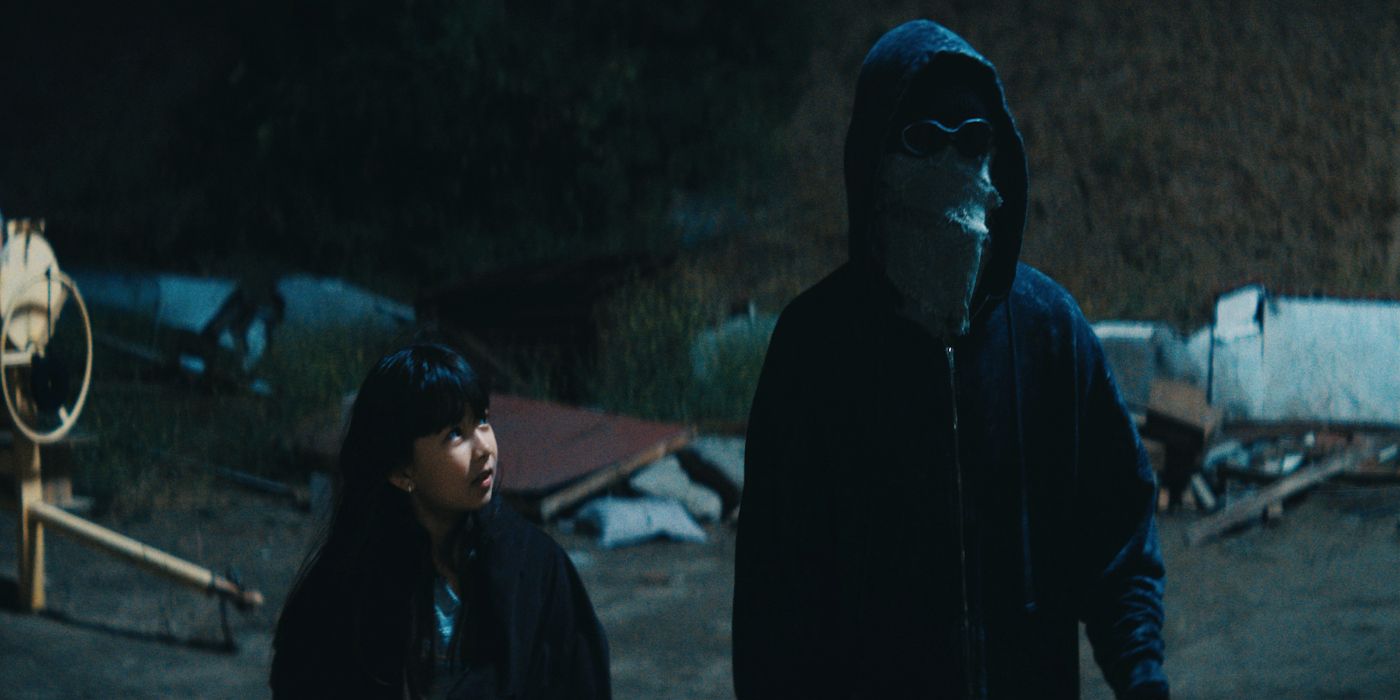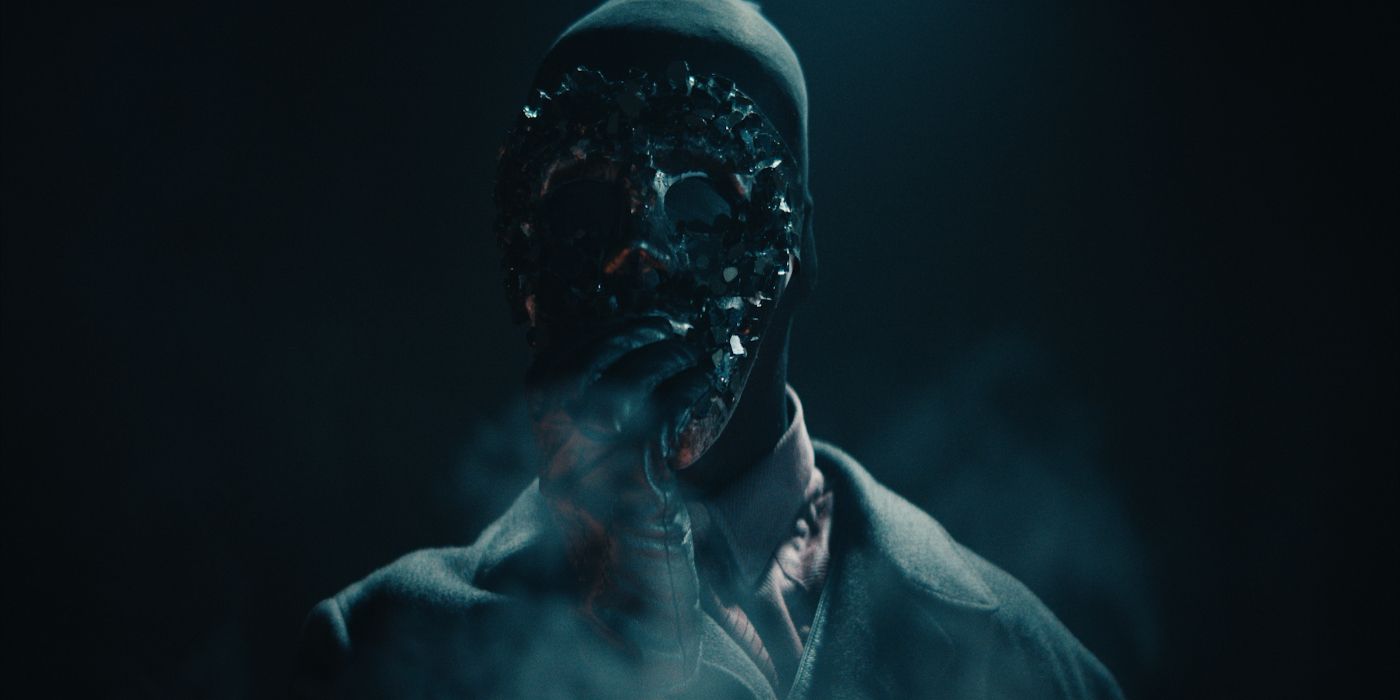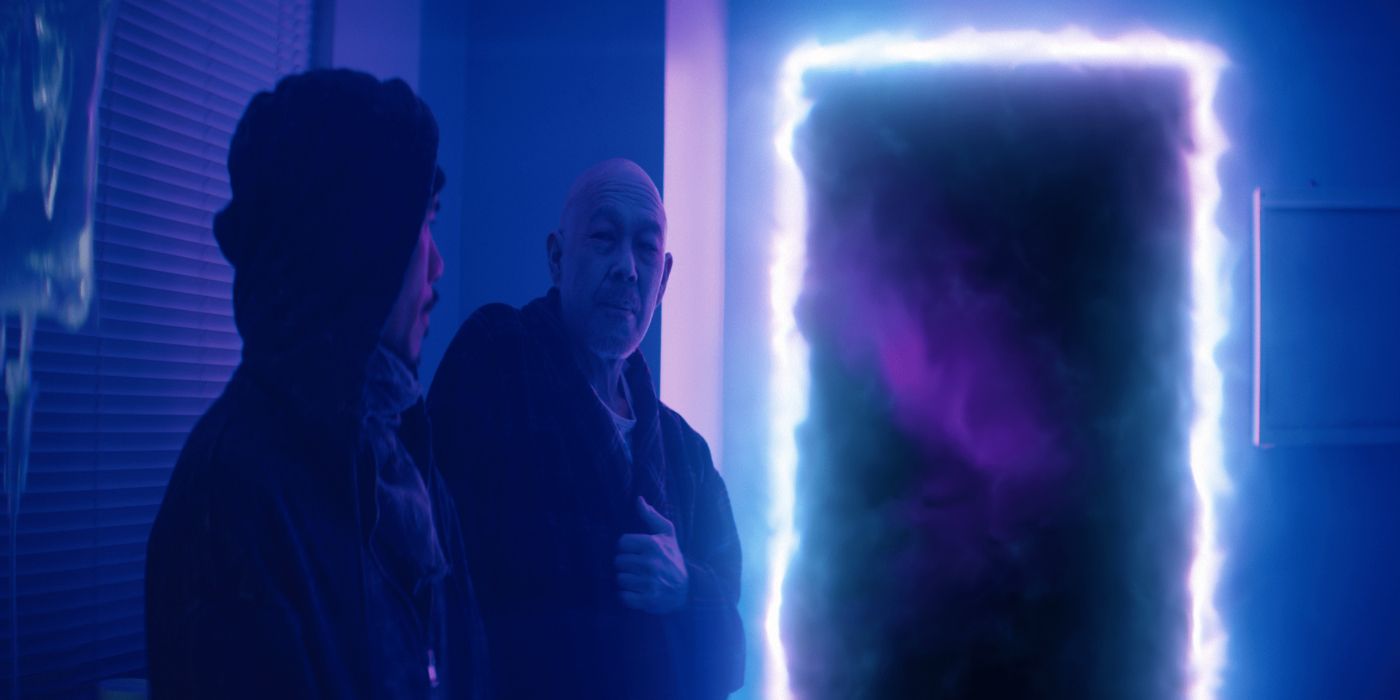
Death takes on various forms in cinematic presentations. In the Final Destination series, it’s an ominous entity that often employs killings reminiscent of Looney Tunes. On the other hand, in the The Sandman series, death is a comforting presence. In the Marvel Cinematic Universe, death is personified by Aubrey Plaza. Lastly, in the movie Ba, directed by Benjamin Wong, death is portrayed as a curse that mirrors the daily drudgery of work and family struggles. It combines magical realism with a raw crime drama, but unfortunately, it does not fully realize its potential.
In the story, Daniel (Lawrence Kao), a solitary father, takes on an unintended role as a reaper of souls to support his daughter Collette (Kai Cech) following their eviction. To conceal his unusual appearance and work, he must maintain a distance from Collette and the public, which puts a strain on their bond. If child welfare agent Macey (Shelli Boone) investigates Collette’s situation, Daniel may have to choose between giving up his deadly job or losing custody of his daughter.
Promising Start Let Down By a Lackluster Ending

In many aspects, the movie “Ba” mirrors the brief cult show “Dead Like Me”: Both stories revolve around common individuals who unwillingly become grim reapers, juggling their responsibilities towards death with their everyday lives. Unlike “Dead Like Me”, which had a humorous approach to its subject matter, “Ba” primarily focuses on familial conflicts. Filmed in a realistic crime-drama style, the movie initially seems engaging. However, as the story progresses, it becomes clear that more attention should have been given to the plot development beyond the initial intrigue.
A significant aspect of the film’s issue lies in its brief duration. With a runtime of only 89 minutes, it avoids becoming too lengthy. However, this brevity comes at a cost as it curtails crucial scenes that could have expanded character development and clarified the intricacies of death and reaping within this universe.
The narrative leaps ahead six months from the opening prologue, omitting how Daniel adapted to his life-changing choice. Consequently, we, as viewers, are informed about his grim reaper role, even though it seems he should already be aware. Instead of demonstrating these aspects, the film explains them, which isn’t particularly captivating.
The film Ba partially recovers its footing due to compelling performances by Lawrence Kao and Kai Cech. Kao effectively portrays the necessary fatherly warmth for his character’s tragic role, yet also has a likable personality that allows viewers to overlook some of Daniel’s less convincing decisions in the second act. On the other hand, Cech steals the show as the film’s rising star, much like Maia Kealoha in the latest live-action adaptation of Lilo & Stitch. Similar to that movie with a foster care narrative, Cech’s Collette embodies the film’s essence, serving as both its heart and soul. Her character, Collette, displays maturity beyond her years while maintaining a childlike authenticity that aligns with the film’s more realistic atmosphere.
In the movie’s final scenes, it becomes apparent that there are problems with Ba’s writing, as the character of Brad (played by Jonathan Medina) is introduced as a menacing figure. Even before he speaks, his actions hint at his abusive nature. Upon his wife’s departure, Brad immediately harms Collette, and manages to fabricate an explanation for her injury to his unsuspecting wife – a social worker who wrongly assumes that Collette was the one causing harm. Regrettably, this portrayal mirrors a common trope in media where social workers and foster families, who aim to assist children escaping potentially dangerous situations, are unjustifiably depicted as harmful.
The choice to include an abusive foster father seems stereotypical, yet Brad has no connection to Collette and Daniel’s personal journeys. He isn’t a symbolic representation of their conflict, but rather a character who appears just before his demise. His death is pursuing Daniel, making the introduction of this new character redundant. The true danger to Daniel and Collette’s family is Death itself, serving as the final hurdle for them to conquer. In essence, the storyline unnecessarily delays what could have been a poignant father-daughter reunion in favor of an ending that contradicts the movie’s overall mood.
Style Goes a Long Way to Cover Up Some Flaws

As a passionate film enthusiast, I found “Ba” to be a movie brimming with ideas, yet it seems like it’s struggling to fully grasp and develop them. It aims to delve into the challenges of single parenthood, particularly the struggle to make ends meet in a job with no room for advancement. However, the film only scratches the surface of this theme, failing to delve deeper into its implications.
“Ba” attempts to grapple with multiple concepts, but unfortunately, it doesn’t provide enough depth or focus on any single idea. This lack of focus is also reflected in the movie’s world-building, which feels overly explained yet remains unclear and undefined.
The supernatural element in “Ba” serves as a fascinating twist, but it often overshadows the father-daughter storyline, acting more as a distraction than an enriching addition to the narrative.
It’s unfortunate that the movie didn’t utilize Ba‘s unique aesthetic more extensively, as it yields some powerful visuals. For instance, the depiction of a modern grim reaper roaming the streets in a hoodie is particularly captivating. Ba‘s interpretation of Daniel as a reaper is an inventive blend of the conventional skeleton in a cloak with a decaying, frostbitten texture that Daniel perceives whenever he gazes into mirrors. This image is quite impactful and could have significantly enhanced the film.
In a clever twist, Ba might not be rich in content, but it certainly shines with style, weaving together elements of the supernatural and the gritty streets of Los Angeles County on a limited budget. Wong skillfully employs flashbacks, capturing them through intimate, hand-held smartphone footage and soothing home videos, which creates a striking visual contrast to the icy tones prevalent in the present-day sequences.
Although Ba didn’t fully deliver on its intriguing setup, it still represents an impressive first venture for director Benjamin Wong. He skillfully blends aspects of horror, crime narratives, and adolescent journeys to craft a distinctive movie. While Ba may not reach the same heights as Darkman or The Pursuit of Happyness, likening it to a fusion of those two films seems fitting.
Read More
- WCT PREDICTION. WCT cryptocurrency
- The Bachelor’s Ben Higgins and Jessica Clarke Welcome Baby Girl with Heartfelt Instagram Post
- Royal Baby Alert: Princess Beatrice Welcomes Second Child!
- AMD’s RDNA 4 GPUs Reinvigorate the Mid-Range Market
- Chrishell Stause’s Dig at Ex-Husband Justin Hartley Sparks Backlash
- Guide: 18 PS5, PS4 Games You Should Buy in PS Store’s Extended Play Sale
- PI PREDICTION. PI cryptocurrency
- Studio Ghibli Creates Live-Action Anime Adaptation For Theme Park’s Anniversary: Watch
- SOL PREDICTION. SOL cryptocurrency
- New Mickey 17 Trailer Highlights Robert Pattinson in the Sci-Fi “Masterpiece”
2025-05-30 17:32